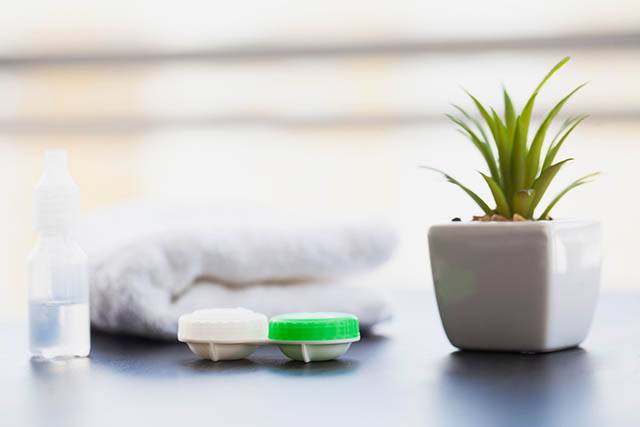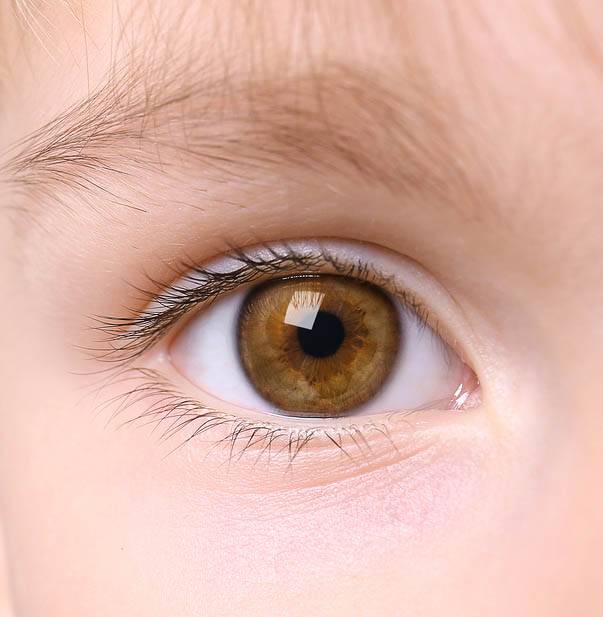ORTHOKERATOLOGY
Ortho-k gently reshapes the cornea while you sleep.
Healthy vision occurs when light enters your eye, hits the retina, and then tells the brain what you see. As these light rays touch your retina, they refract (bend), sending nerve signals to your brain, which translates the things you see into images so that you can understand what you’re looking at.
Should your cornea have any kind of irregular shape, it can cause the light that enters your eye to be refracted incorrectly. When this happens, the brain cannot understand the images, leading to blurry vision. This situation is known as a refractive error.


What is Myopia?
Myopia, also known as nearsightedness, is one of the most common refractive errors. It affects your ability to see things at a distance, while objects or images that are closer to you remain clear.
Myopia is prevalent in both adults and children and its numbers are rising worldwide. Nearly 11% of the global population has it, and studies predict that by 2050, myopia will affect half of the entire world!
This condition is generally treated with the use of eyeglasses or contact lenses, which correct vision by refracting light properly. It’s worth noting that while these solutions improve your vision, they only work so long as you wear them, and they do not cure the condition itself.
According to FDA trials conducted on both CRT and VST lenses, more than 65% of patients achieved 20/20 visual acuity. An impressive 90% achieved 20/40 vision or better, which is an important achievement since this is the legal requirement for driving without vision correction in most states.
What is Orthokeratology?
Orthokeratology, more widely known as Ortho-k, is another tool in our arsenal of treatment for myopia.
Ortho-k refers to rigid gas permeable contact lenses that gently reshape the cornea while you sleep. In the morning, simply take the lenses out and go about your day. Since the Ortho-k lenses have reshaped your cornea during the previous night, many patients experience improved vision the following day. Some even find that they don’t need to wear glasses or contacts, but can see clearly without them.
To ensure the most effective treatment, Ortho-k lenses must be custom-fitted for each patient. Dr. Yoram Friedman will take measurements of the size and curvature of your cornea and create a tailor-made set of lenses to fit your eye’s unique shape. They fit perfectly over the cornea and allow air to pass through, so they won’t dry out. This keeps the Ortho-k lenses moist and comfortable.
How Effective is Ortho-k?
Ortho-k lenses gently flatten your cornea, allowing light to enter and refract properly. This ultimately gives you better, clearer vision. Ortho-k has even been shown to slow down the progression of myopia by an average of 50%, an important benefit that prevents the condition from worsening.
There are currently 3 brands of Ortho-k lenses that are FDA approved for overnight wear. Euclid Emeral, Paragon Vision Sciences, which produces “Corneal Refractive Therapy” (CRT), and Bausch and Lomb, which manufactures “Vision Shaping Treatment” (VST).
Is Ortho-k Better Than Eye Surgery?
While vision correction surgeries like LASIK can reshape the cornea surgically in myopia patients, these types of procedures are permanent and cannot be reversed. Ortho-k lenses offer the same advantages as LASIK, but with less risk than invasive surgery. That is because you can simply stop wearing them and your cornea will revert back to its previous irregular shape. Unlike other options, Ortho-k is suitable for children.
Adults with myopia may be candidates for eye surgery to correct the refractive error, but children are a different matter. Eye surgery to correct vision is generally not performed on patients younger than 18. This is because children’s vision is unstable during their younger years as their eyes are still developing. Fortunately, kids can benefit from wearing Ortho-k lenses.

Ortho-k for Children
Kids have a high incidence of myopia, with 1 in 10 American children (9.2%) aged 5 – 17 showing signs of the condition. It is often inherited, so a child can develop nearsightedness if one or both of their parents have it.
When worn consistently, Ortho-k can stop myopia from deteriorating further. This is crucial to maintaining healthy eyes because if left untreated, as children grow older, myopia can eventually lead to more severe eye diseases like glaucoma, early onset cataracts, macular degeneration, or retinal detachment. That’s why the doctor recommends earlier treatment. The sooner we can treat your child’s myopia, the lower the risk of more serious vision problems.
If you or your child are experiencing blurry vision, eyestrain, persistent headaches, or other signs of myopia, contact Myopia Management Center At Family Vision Center NJ. Our years of expertise and access to the latest technologies can help you achieve better vision today.
